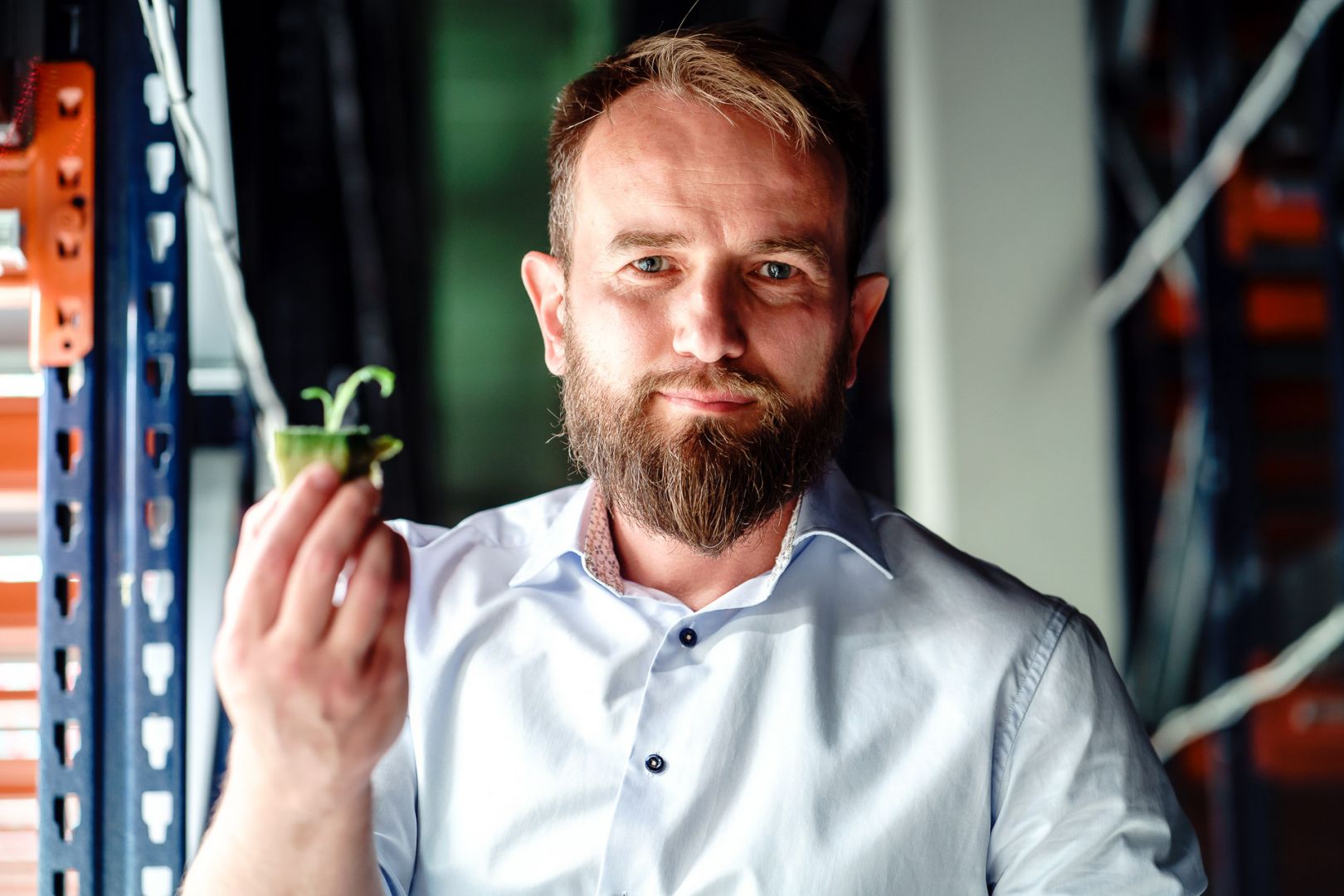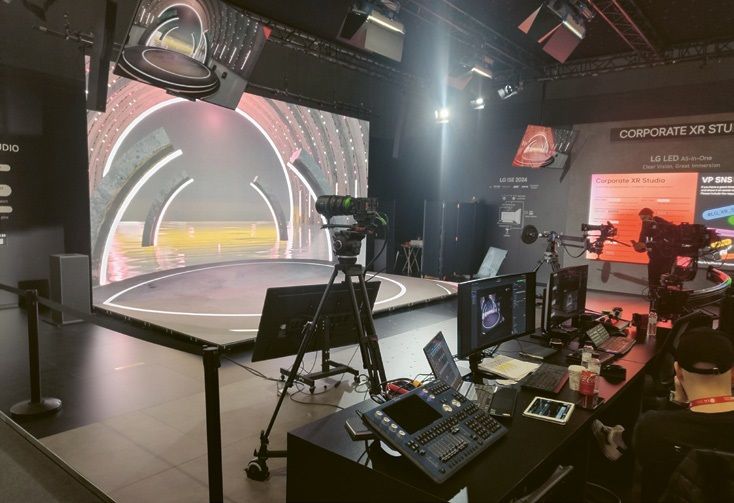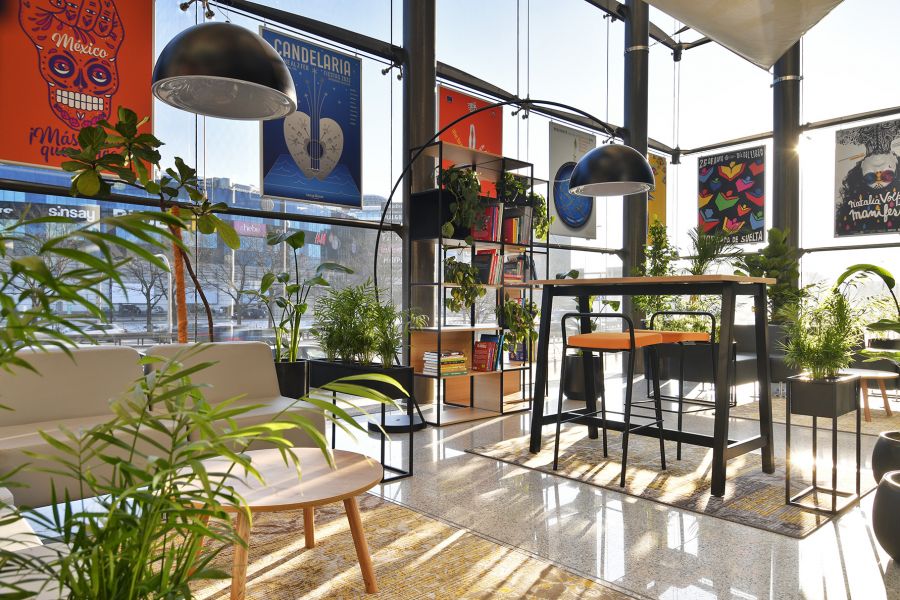A Polish R&D based project is revolutionizing food industry
Fresh produce industry faces global challenges which make it harder to obtain good quality products. Can an innovative, science-based project provide solutions? We talk to Łukasz Maciak, the founder and CEO of Bioponic Farm, in order to learn about aquaponics – an innovative, no-soil and chemicals-free cultivation technology that enables sustainable production of healthy food all year round.
Dymitr Doktór, FOCUS ON Business: Scientists are ringing alarm bells – future generations will face food shortages. Food is becoming more and more expensive, something we experience in our shopping carts on a regular basis. You've been studying the market for many years. Do you think food shortages are a genuine concern?
Łukasz Maciak, Bioponic Farm (formerly PlantLab): I think we won’t run out of food – at least for the time being; it’s the quality that will drop quite dramatically. Globally, nearly one billion people are starving and it has been like that for years. Europe, however, may soon run out of... fresh produce. We’re talking vegetables and fruits produced on a monthly basis. During the growing season, they are supplied by domestic farmers.
Poland is strongly dependent on seasonality, that’s a well-known fact. The season itself is short and weather plays a crucial part. 2022 showed a clear link between an increase in fuel and gas prices and its impact on production costs of nitrogen fertilizers. And that, in turn, directly affects the amount of fertilizer used by farmers. Some of them reduced fertilization by up to 50%. High fossil fuel prices prevented greenhouse farmers from starting production earlier. This meant that the final price you saw in the supermarket skyrocketed.
The other side of the same equation is that we turn to imports and bring in cheaper food from Spain or African countries, such as Morocco – retail chains stock their warehouses with goods coming in from that direction all year round.
At the same time, the COVID-19 pandemic exposed fragility of global supply chains and its immense impact on local prices as well as availability of food, especially fresh produce. We have closed borders, introduced controls, and quarantines. We experienced problems with timely delivery of food, issues surrounding its logistics, as well as maintaining its freshness. This experience can’t go to waste.
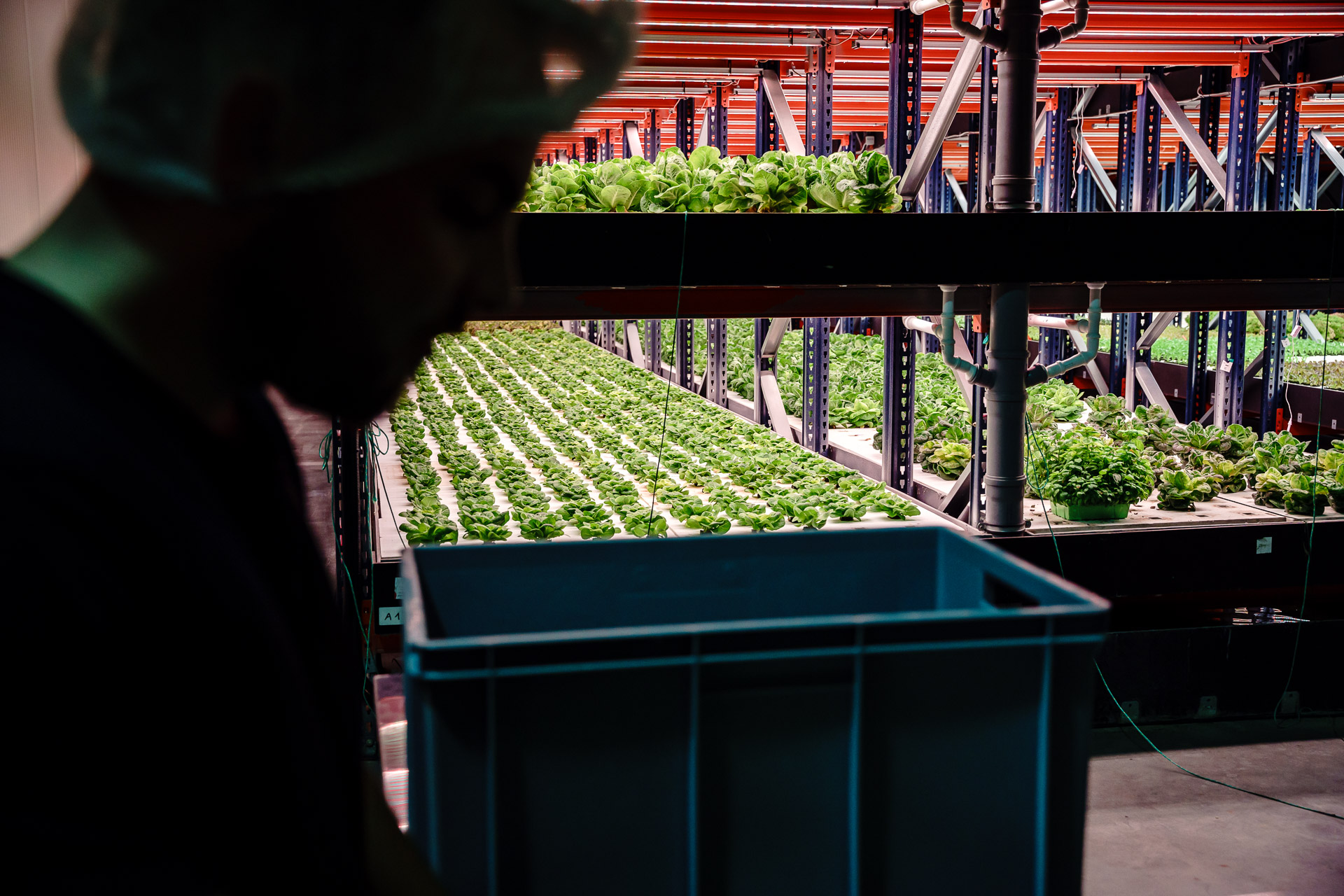
How do Polish businesses and entrepreneurs within the food sector approach these challenges? Is production of very expensive food – quite often unaffordable – the only solution they are left with?
The production itself is not as expensive as you may think it is. Let me focus on data covering the Polish market only. By the way, we waste nearly 5 million tons of food annually. The potato market is a good microcosm for what I want to highlight. A Polish potato of the highest quality costs 0,2-0,3 PLN when bought from a farmer. The retail cost is 10 times higher. So, in the end, we import products of inferior quality, which no one in the West would buy. Can we not spend our hard-earned any better?
And our best products are West-bound at the same time.
That’s correct – Polish products end up abroad. The cycle is complete when fruits and vegetables no conscious customer in the West would buy end up in Poland. This is an issue we have faced for a long time.
But there is light at the end of the tunnel. We are safe because we have a lot of arable land and a large number many farmers. No large enterprises – we’re talking smaller farmers with diverse production. They’re also fairly dispersed. In terms of geography, however, Poland is far from Spain or Morocco. Thus, from an economic standpoint, large scale export is not a viable option.
I strongly recommend learning the story behind Almeria, a Spanish province which is the largest food producer in Europe. There’s a massive white patch of plastic covering the east end of the Iberian Peninsula which is actually visible from space. According to estimates, the enormous greenhouses located there farm up to 95% of fresh produce for Europe. Only a few of us know that water shortages happening mere 50 kilometers from its borders are so severe that it is necessary to deliver it by tank trucks. Regional authorities are struggling with a genuine hydrological problem. Demand for fresh water in this area is so high that Almeria will have to halt production in the next 5 to 10 years. This is predatory economy.
Let’s turn to local farming for a moment. In the event Spain can’t keep up its production levels, then Poland is equipped to cover its local market. It is Germany or the Scandinavian countries that I feel sorry for. Having said that, I’m aware of the way global markets operate so I know that rich countries will get by – at the expense of poorer countries, that is.
Bioponic Farm, previously known as PlantLab, was established in 2016 What was the main goal you had in mind when launching this project?
My top priority was to produce healthy food. This is something I find very important as I suffer from a number of allergies. It is the dubious quality of fruits and vegetables caused by soil contamination (overfertilization, spraying, heavy metals, etc.) that contributed to making allergies a disease of civilization. It’s all really rather simple: by spraying plants (which protects them from pests, weeds or bacteria) the soil accumulates all the unhealthy elements. Then the plants absorb them and the cycle is complete.
From the business standpoint, I wanted to build a technology that focuses on repeatability and continuity when it comes to producing healthy food. This is how the idea of closed spaces came about. This, in turn, allows to return arable land to farmers, who can use it for grain farming.
At Bioponic Farm, the season is 12 months long. We produce the highest quality lettuce, which goes on sale 3 hours after picking.

Tell us a bit more about the production system. What is the technology behind it?
It’s called aquaponics. Bioponic Farm is the only company in Europe in the vertical aquaponics segment. Aquaponics is a type of soilless cultivation – not even an ounce of soil is used. I would like to highlight this as soil is the most unreliable element in the entire process.
That’s because plants absorb nutrients from soil during the growing season, and that fact depletes soil. In addition, soil accumulates various harmful components. Therefore, we managed to remove the most unstable element and focused on water which now carries minerals for plants and thus provides them with their most basic nutrient.
Hydroponic crops exist, too, and they are a lot more common. Most of the greenhouse-produced lettuces bought in Poland come from hydroponic crops. You could say that they were also floating in water. However, we went a few steps further.
First of all, we decided to use fish, and specifically the effects of fish metabolism (after nitrification), in order to obtain fertilizer in a natural way. That means we do not have to rely on any artificial fertilizers, and we do not use any chemical plant protection products because we have isolated crops from all external factors.
Another innovation is that we developed aquaponic vertical cultivation. In essence, we have increased the cultivation area many times over. Thanks to high-storage racks, we use as much as 11 m2 per 1 m2 of space.
Our water is in circulation for 365 days. It passes through the plants, then it returns to the fish in order to be saturated with minerals, and goes back again – it’s a closed cycle. Additionally, we have created a sophisticated microclimate maintenance system which condenses water from air, sterilizes it, and transfers the water to the main water circuit.
Let me illustrate this with an example – at least 250 liters of water are required to produce a single lettuce in normal field conditions. We require less than 0.5 liter to do the same.
We buy carbon dioxide which we treat as a natural booster. We feed the plants and generate no emissions, which genuinely solves outstanding issues. This installation can be built anywhere in the world; even in city centers and urban areas, where reducing carbon footprint is of particular importance.
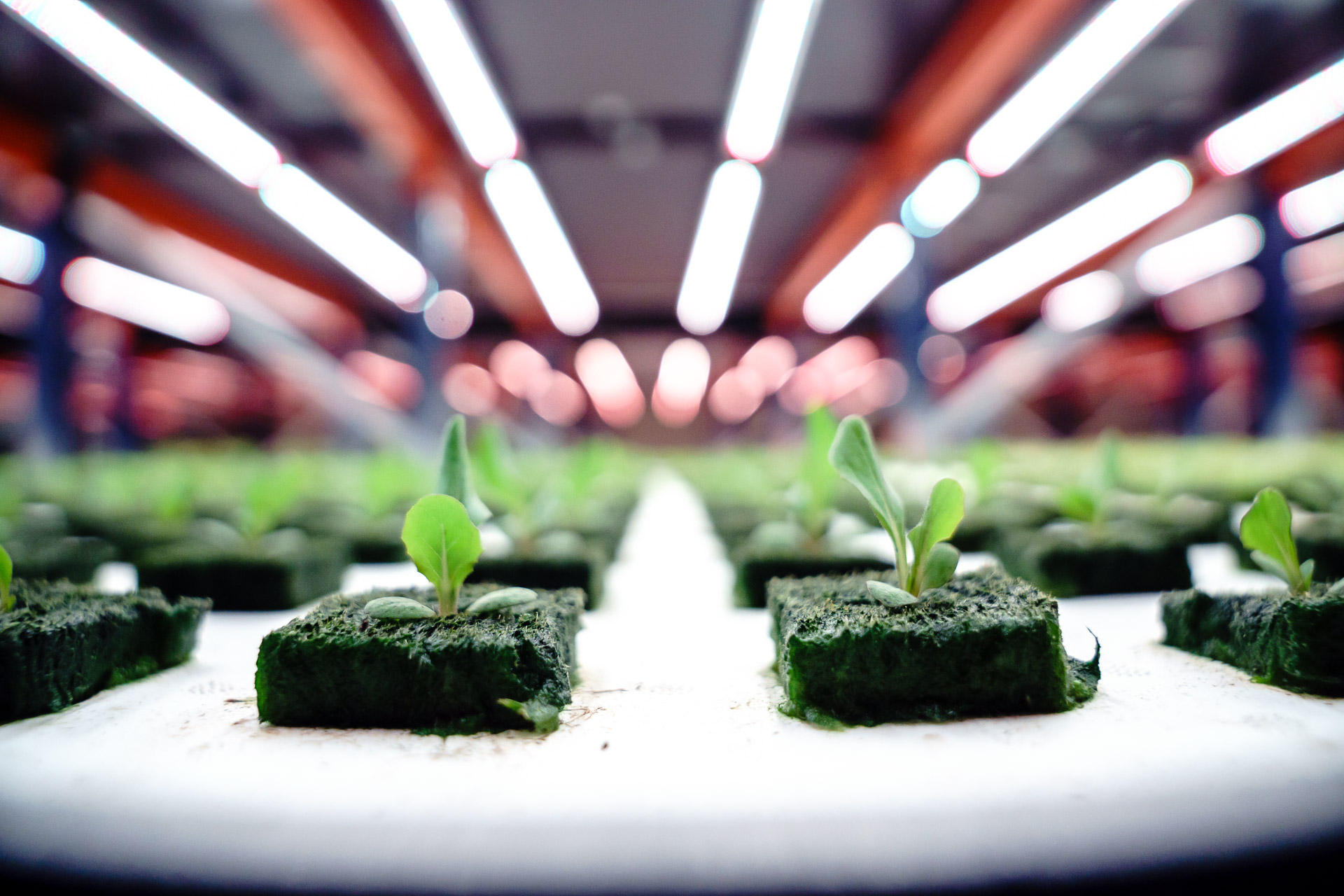
Bioponic Farm is a biotech company where collaborating with scientists is part of your modus operandi. How long did it take to implement this project?
It took us 8 years to properly prepare and keep improving the method. Naturally, this is an ongoing endeavor which continues to evolve. After years of trials and a number of unsuccessful attempts to introduce our technology to the market, together with our partners – the Institute of Horticulture in Skierniewice and the Department of Ichthyobiology and Fisheries of the Polish Academy of Sciences in Gołysz – we have finally received a grant intended for the construction of a pilot installation. This is a laboratory installation, because we are constantly testing and studying different plant varieties that we’d like to produce. Among them are lettuce, chicory, arugula. We will be able to produce any type of food in such a venue in the future.
That’s why I’m confident our company solves all the challenges we spoke about earlier.
Farming of the future – is that what’s happening here?
You’re right, this is farming of the future. It’s quite shocking that in order to produce healthy food we have to get away from nature. Producing healthy food, with no chemical additives, now requires locking oneself inside a hall and isolating from nature.
It seems to be a technology-heavy and demanding business, but fairly profitable at the same time.
If you find your niche it can be very profitable. The fact Poland is importing so much food means prices are very high during the off-season. Also, they’re in transit for a few days before reaching the end customers, which means they are not as fresh anymore. Our produce can reach end customers located in a 150-kilometer radius within 2 to 3 hours, and we can deliver to every part of Poland within 6 to 10 hours. The lettuce we produce does not stop at warehuoses and our delivery trucks do not queue at border crossings.
Bioponic Farms can transform every large city in Poland and in the world into an independent entity, completely free of external supplies. I believe the future will prove it.
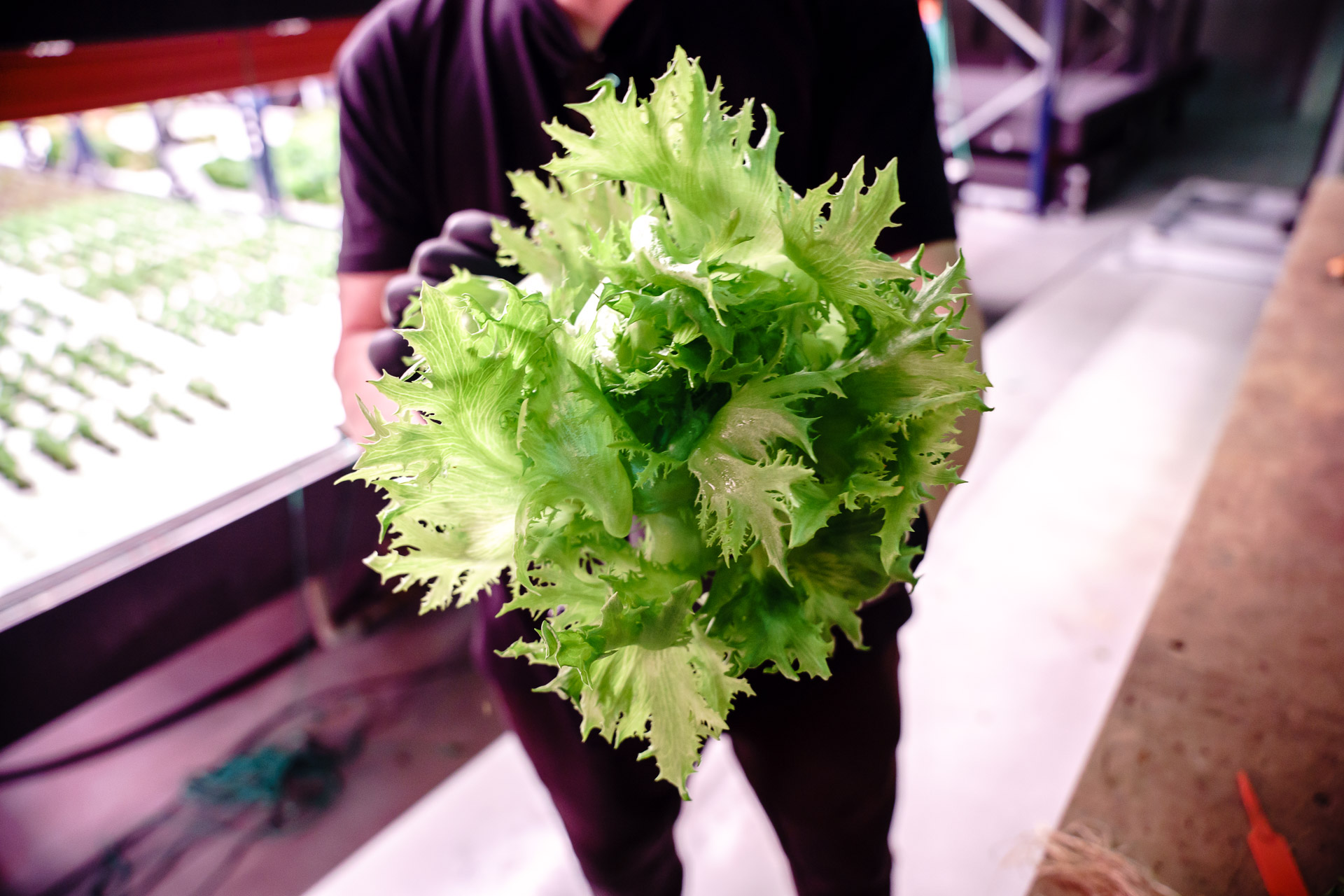
So, large food corporations – beware?
They should not be afraid of us because we’re not trying to compete with them. They will want to talk to us as soon as they understand what they get in return for working with us. Let’s not lose sight of capacity differences. Bioponic Farm is capable of producing 6 million lettuces per year as of today, whereas one of the retail giants sold approx. 170 million lettuces in 2022. It's a completely different ballpark.
Bioponic Farm is a pioneering idea, both in terms of the system as well as the business formula behind it. Research is a crucial part of your activities. Are you more of a scientist or a businessman on a daily basis?
Actually, I believe the term ‘visionary’ describes it best. I have a broad view of the entire operation, the company, the process we’re executing. Indeed, we have completed the installation but, in the meantime, we have modified many of its building blocks. And then there’s bureaucracy which – let’s be honest – really does not make life any easier for us. No one has farmed in such halls before so we have to pave the way.
Only one real estate developer agreed to have our system installed in on their premises. As a result, they now have something completely new and, dare I say it – quite unprecedented. We utilized space in a high-storage warehouse in a totally different way to your run-of-the-mill storage of goods; and it turns out that we’re producing excellent lettuce. Speaking of quality, test results confirm that the lettuce we produce is the cleanest in the world. This is a testament to all the efforts and hard work we have put in.
Despite introducing many modifications, we are constantly adding new ideas. Scientists working with us are proactively coming up with solutions to the problems we’re facing, always thinking of ways to improve the system. I know that we have fantastic potential, but I’m very aware of the fact that we do not have a readymade solution for every problem coming our way – it’s all a learning curve.
What about funding? Have you, like many Polish companies and startups, found it difficult to secure it?
Indeed, we’ve had significant funding problems in the past, but the external grant we have received finally put an end to this. We have found an investor who believed in us and in the project. And, suddenly, a trio of doom came along – the COVID-19 pandemic, rising inflation, and the war in Ukraine. All three had an impact on our financial standing, however we are definitely still in the game and carrying on. This project is our life.
Fingers crossed we’ll soon be able to unveil full-scale production capabilities. Our product is ready, it meets all requisite conditions. The feedback we’re getting is extremely encouraging as customers are delighted with our produce. They love its quality, tenderness, replicability, taste. I would even go as far as to say that it’s not even the technology but the lettuce that speaks volumes (laughs). Why not trying it for yourself!

Another hall in the future?
That’s the plan.
I keep my fingers crossed for you. Thank you very much for the conversation.
This article comes from magazine:
FOCUS ON Business #11 July-August (4/2023)
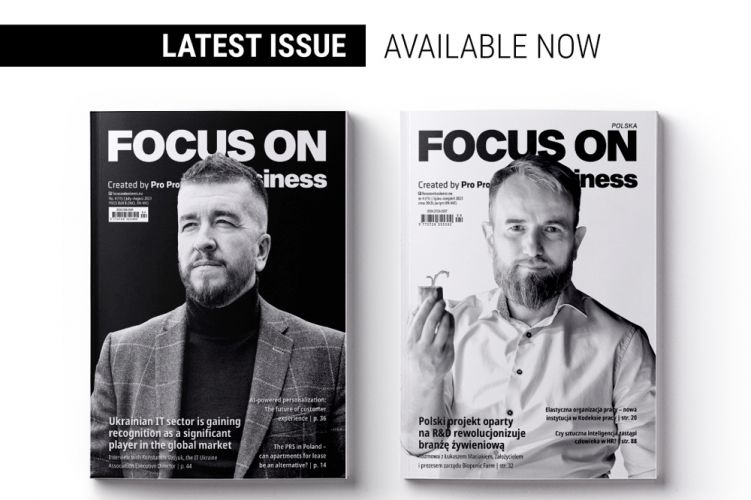 Check the issue
Check the issue
